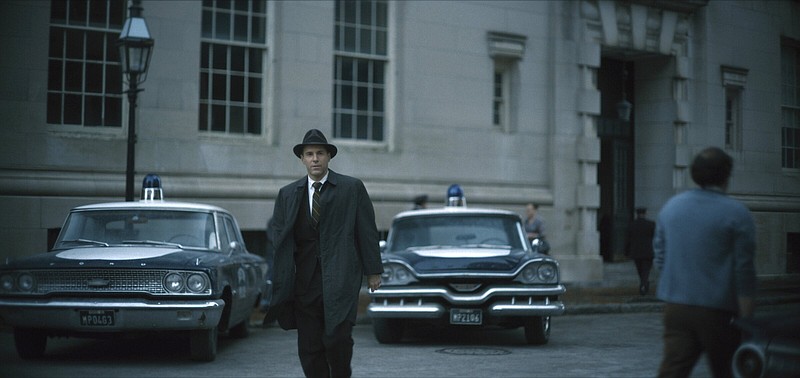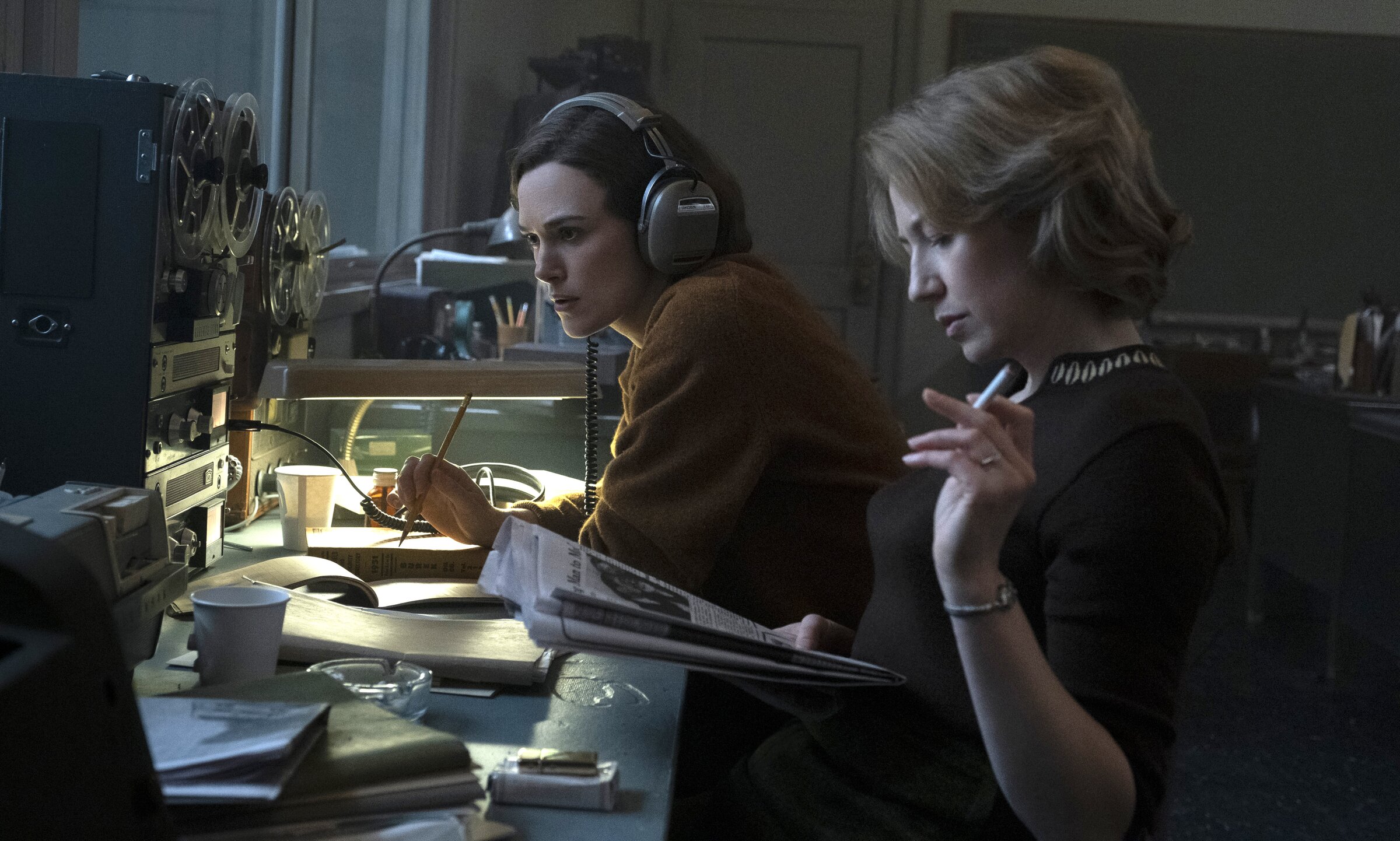Movies based on real events are always set upon a balancing beam. How much do you stick to history, and how much do you dramatize for the sake of the story? I'm not sure there's a right and proper formula. It's probably different for each film, and that's certainly true for "Boston Strangler."
Hulu's taking a swing at the story of an infamous serial killer (or killers depending on what you want to believe). This latest adaptation of the horrific events in Boston comes more than half a century after Tony Curtis and Henry Fonda graced the silver screen in a film called "The Boston Strangler." I suspect Philip Martin probably has a copy of that somewhere in his tubs of movies.
"Boston Strangler" follows a lifestyle reporter named Loretta McLaughlin eager to move on to more significant stories. She's played by Keira Knightley who, thankfully, doesn't attempt a Boston accent. After demonstrating her reporting chops to editor Jack Maclaine (Chris Cooper), McLaughlin is placed on the story of the Boston Strangler with investigative reporter Jean Cole (Carrie Coon).
McLaughlin and Cole are real reporters who worked in Boston. The Hulu film ends with pictures of their real-life counterparts and snippets of their life.
The actresses' chemistry as reporters ends up being one of the movie's strengths, especially throughout its well-oiled first half. I'm not sure how closely the film mirrors real life in terms of their relationship, but the movie ends up giving them a sisterly bond I found endearing.
While McLaughlin learns the ropes of crime reporting and hits roadblocks, Cole is quick to step in and help her out, revealing tricks of the trade, documents that are public record, and calling in favors with cops and medical examiners she has known for years.
As more women are killed and the reporters dive deeper into the story, they hit plenty of different angles from the incompetence of the Boston Police Department to profiles of the victims. And again, for the first half of the movie, I enjoyed watching the story told from the perspective of newspaper reporters in the 1960s.
It's not "The Paper" and sure as hell not "Spotlight," but the newspaper aspects of "Boston Strangler" were fine, thanks mostly to the trio of performances from Knightley, Coon and Cooper.
And as they close in on real-life names associated with the murders, I watched the last half of the movie slowly unwind.
David Dastmalchian plays Albert DeSalvo, though the movie keeps his face hidden for a while. His introduction is where the film's writing gets a little murky. In real life, DeSalvo confessed to the murders of 13 women in Boston during the 1960s. And DNA evidence even linked him to the last victim, though to this day there persists some doubt as to whether he committed all the murders.
"Boston Strangler" chooses to paint DeSalvo's confession through a lens of suspicion and doubt, particularly where other convicts like George Nassar were involved with the case. And by the time the credits rolled, I found myself having already expected the movie to end two or three times prior.
Once DeSalvo gives his confession in the film, McLaughlin is portrayed as a reporter who refuses to let the case go, digging further into inconsistencies within the story. And it's not that Knightley failed in some way to deliver upon this portrayal of personal conviction. I just felt like the story didn't quite know what circumstances to put her in to highlight that drive.
By the time DeSalvo is killed in his prison cell (as in real life), I'd long since wondered where exactly the film would call it quits. And it didn't help that the storyline jumped around between different years, seemingly without much reason.
Perhaps the film's latter half unwinding is an instance of art mimicking real life where doubt about DeSalvo's confession is concerned. But I'm left suspecting that's more of an accident than intentional direction.
Maybe "Boston Strangler" was trying to juggle too much, delivering a message on how uncertain some conclusions about the crimes were, showing the deterioration of McLaughlin's marriage, making sure Cole's character development matched that of her partner's, commenting on sexism women faced as reporters in the '60s, and more.
Somewhere in all of that, the film got lost and couldn't settle on what kind of story it wanted to be. The movie's beginning suggests it wants to be a newspaper story, and by the film's end, I got the impression it wanted to be a true-crime series. The uncertainty of tone and theme certainly made for a mixed bag.

